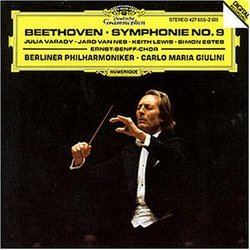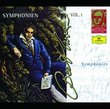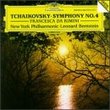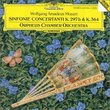Last Of The Great Poets
Roger W. Wood | Jacksonville, Florida | 06/19/2007
(5 out of 5 stars)
"Let me stop all the preludes and get right to the music. This is one of the great performances of Beethoven's 9th of all time. No one does as much with this symphony as Giulini. It ranks higher than his previous great one with the LSO.
Anyone who listens to Giulini knows they need to hear the whole thing before making a judgment about his performances. I have. Again and again. And my musical sense tell me this is certainly the greatest chorale of all time, and one of the greatest performances of all time. (Certainly there is a lot of company here in the great performances category, but let's give this great man what he deserves for what he and this great orchestra and choir do with this -- perhaps -- greatest of all symphonies.) It is an absolute artistic and performance triumph in spite of Simon Estes sounding like he's out of breath on the opening solo "Freude, schoner Gotterfunken, Tochter aus Elysium..."
As the review predating mine has already said, this is an arresting performance of Beethoven's 9th. I have heard just about everybody's rendition over the last 50 years, but no one's is so fresh, sparkling, beautiful, and still so powerful as Giulini's. Some never get it, but speed itself does not create music velocity. No one understands that better than Giulini. I think Hurwitz's opening review of this performance is comedy. There are those who think they can judge his artistry by bumping him off with the speed rap. In this performance, the widened line, depth, overall scope, attention to detail, glorious playing by the Berliner Philharmoniker, and a poet's perfectionist crafting are on display. If he were brain-dead, as one or two seem to think, then how did he get all those invitations to conduct the world's leading orchestras?
I challenge anybody to do the chorale portion better than Guilini. His performance of the chorale here, as well as with the earlier EMI LSO performance, is to die for. Its beauty and power are inutterable. There are few 9ths that rate with this one. The only one I know right off hand is Furtwangler's Bayreuth ('56?) performance. Maybe Giulini's own earlier LSO performance on EMI. Giulini's Beethoven 9ths really deserve a special place and a special review.
What separates this performance from all others for me? First, Giulini's poetic artistry. He saw the whole thing in an unique way. He understood gravity as well as velocity. My, he could conduct! He was the last (at least for a while) of the great romantic conductors, in my opinion. Secondly, the marvelous playing of the Berlin Philharmonic. This orcherstra bought his insights and played them without peer. It is the best playing I personally have heard on the 9th. Whoever listens to this orchestra's playing of the chorale is bound for glory. Finally, CMG's incredible performance of the chorale. For a long time I never thought I would ever hear a better chorale than the Szell/Shaw one by the Cleveland Orchestra. But CMG is just untouchable! (His opera background gives him such an edge!) Those three things -- poetic artistry, great orchestral playing, and untouchable chorales -- separate this performance from all others, with the possible exception of Furtwangler's Bayreuth rendition. There are no others like it. And it couldn't be done by anyone else. It is a rare glorious view of a great symphony. It rates with Furtwangler's great 9th. Friends, there are many very very good 9ths. But there are relatively few very great ones. This is one of them.
Don't listen to it too long, or you'll be just as captivated and convinced as I. I have listened to a lot of Giulini performances. The one thing I have learned is that one must listen to the whole thing. Take out one movement from the others, and you abort his vision. He sees the whole thing. And he has absorbed it personally like a poet. (Too subjective? No! Every conductor is a conduit for the music. It's very subjective!) The music sounds new practically everytime. I challenge anyone to listen all the way through to anything CMG has done in the last 20 years of his career and tell me it is too slow. If the real music world thought so, how did he get all those invitations to conduct and record at Vienna, Berlin, Munich, Amsterdam, and London? Those who claim "too slow" simply, in my opinion, have not lived very long. This man offers a poet's view combined with a baton artistry that few have ever equaled.
Get this recording and sleep with it. It is that rare. It is one for the ages."


 Track Listings (5) - Disc #1
Track Listings (5) - Disc #1



